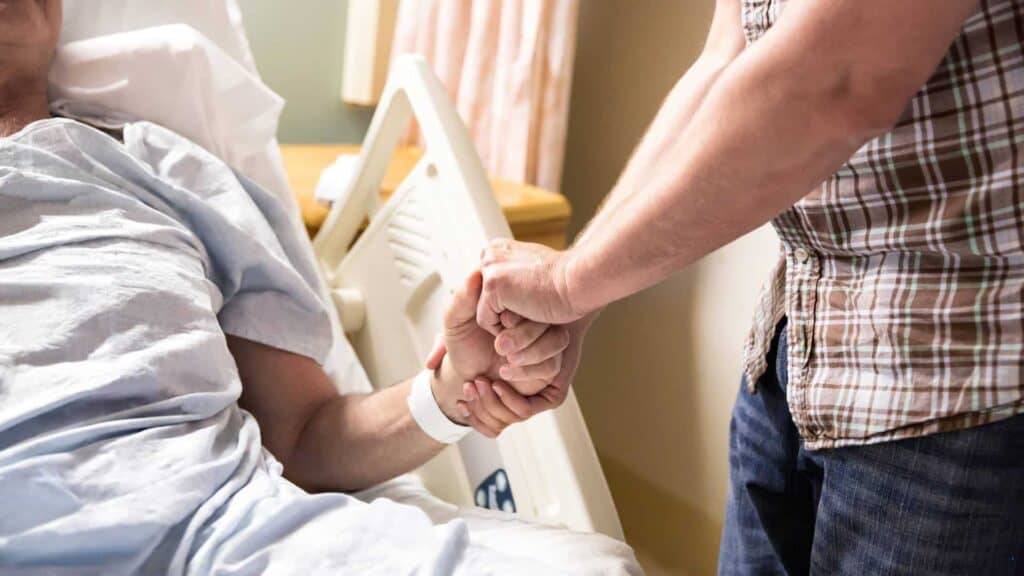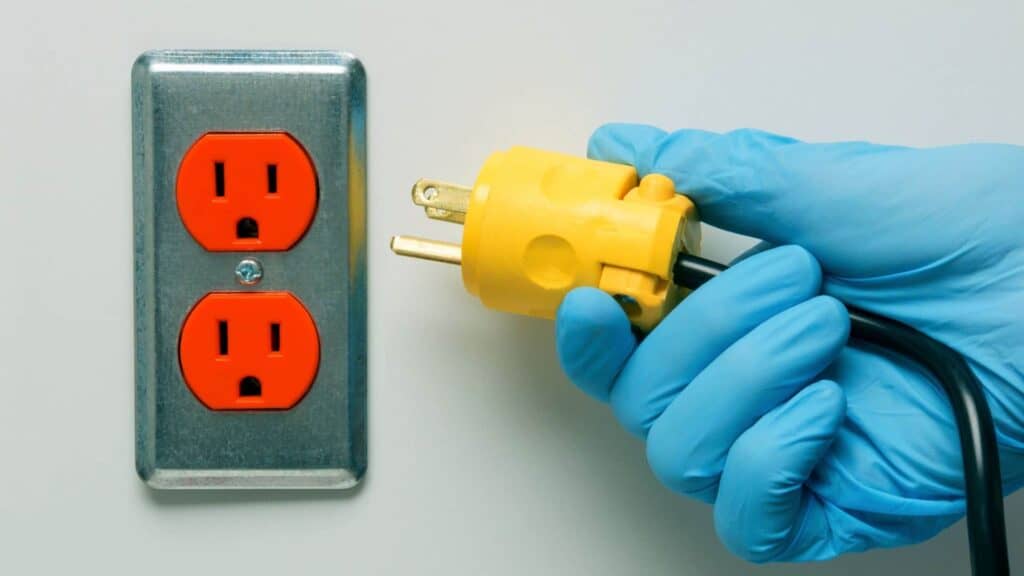
Are you unsure how to handle end-of-life care for a loved one? You’re in the right place. This guide will help you understand your options and make the best decisions during this difficult time.
Let’s take this journey together and ensure your loved one receives the dignity and care they deserve. With clear information and compassionate advice, we aim to support you every step of the way.
What is End of Life Care?
End-of-life care is a special kind of support designed to provide comfort and assistance to people nearing the end of their lives. This stage is often marked by advanced illness or terminal conditions. So, it can be challenging for the person experiencing it and their loved ones.
End-of-life care ensures that the person’s physical, emotional, and spiritual needs are met, helping them maintain dignity and quality of life in their final days.
The Importance of End-of-Life Care
The journey towards the end of life is deeply personal and unique to each individual. End-of-life care focuses on alleviating pain and other distressing symptoms while offering compassionate support to the patient and their family.
It’s not just about managing physical discomfort but also about addressing emotional struggles. By offering comprehensive care, it helps patients live as fully and comfortably as possible until the end.
Hospice Care and Palliative Care
Two critical components of end-of-life services are hospice care and palliative care, both of which play vital roles:

Hospice Care
This type of care is specifically designed for people who are in the final stages of a terminal illness, typically when a doctor believes the patient has six months or less to live. Hospice care can be provided at home, in a hospice center, or a hospital.
It focuses on quality of life rather than curative treatments. It emphasizes comfort, pain management, and emotional support. Hospice care also extends support to the family, helping them cope with the emotional and practical aspects of caregiving and loss.
Palliative Care
While similar to hospice care, palliative care can be provided at any stage of a serious illness and alongside curative treatments. It aims to relieve symptoms and stress, improving the quality of life for the patient and their family.
Palliative care teams include doctors, nurses, and other specialists, who work together with a patient to provide an extra layer of support.
Benefits of Specialized End-of-Life Care Services
When you choose specialized end-of-life care services for your loved ones, it can significantly enhance the experience for both of you. Some key benefits of these professional services include:
Comprehensive Symptom Management
Specialized teams are skilled in managing complex symptoms like pain, shortness of breath, nausea, and anxiety, ensuring the patient is as comfortable as possible.
Personalized Care Plans
Each patient receives a tailored care plan that respects their wishes, values, and cultural beliefs, fostering a sense of control and dignity.
Emotional and Spiritual Support
End-of-life care addresses not just physical needs but also provides emotional and spiritual support. It helps patients and families navigate the profound changes and challenges that come with this stage.
Family Support
Caregivers and families receive education, counseling, and respite care, helping them manage the emotional and practical demands of caregiving.
Improved Quality of Life
Patients often want to have a better quality of life during their remaining time. They tend to prioritize their comfort and support rather than aggressive treatments.
How Do You Know When End-of-Life is Near?

You should be able to recognize the signs that your loved one is nearing the end of their life. It’s never easy though. Understanding these symptoms can help you prepare and ensure they receive the best care possible. Here are some common signs that indicate the end of life might be near:
- They may sleep more often and for longer periods. Daily tasks become exhausting.
- They might eat and drink less, leading to noticeable weight loss.
- Irregular breathing patterns, shortness of breath, or periods of apnea (pauses in breathing) are common.
- Moving around becomes difficult. They might spend most of their time in bed or a chair.
- They may withdraw from social activities and prefer to be alone.
- There can be periods of confusion or disorientation. They may not recognize familiar faces.
- Increased reports of pain or discomfort, often requiring medication adjustment.
- Decreased urine output and changes in bowel movements, such as constipation or incontinence.
Identifying Symptoms and Seeking Care
Families can look out for these symptoms and seek appropriate care when needed. Here’s how:
- Observation: Spend time with your loved one and note any changes in their behavior or physical state.
- Ask Questions: Don’t hesitate to ask your loved one how they feel, even if it’s difficult. Their comfort is the priority.
- Consult Healthcare Providers: Regularly communicate with doctors, nurses, and hospice care teams. They can provide insights and adjust care plans.
- Pain Management: Ensure their pain is managed effectively. This might mean adjusting medications or exploring new treatments.
- Comfort Measures: Focus on comfort. This includes a comfortable bed, a peaceful environment, and emotional support.
The Importance of Open Communication
Open communication with care teams is crucial in identifying and treating these symptoms. Here’s why:
- Accurate Information: You get accurate information about your loved one’s condition and what to expect.
- Tailored Care Plans: Care teams can create a plan that’s tailored to your loved one’s needs.
- Emotional Support: Talking openly helps you and your family process emotions and make informed decisions.
- Coordination of Services: Ensures all caregivers are on the same page, providing seamless support.
What to Expect When Your Loved One Is in Hospice
When your loved one enters hospice, it’s natural to feel overwhelmed. When you understand what to expect, it can help ease some of the stress. Hospice care is a specialized type of care focused on comfort and quality of life. Here’s a guide to help you deal with this emotional journey.
Compassionate Care Team
Your loved one will be cared for by a team of professionals. This team often includes doctors, nurses, social workers, and chaplains. They work together to provide medical care, pain management, and emotional support. You can expect regular visits from these team members, ensuring your loved one’s needs are met.
Pain and Symptom Management
Managing pain and other symptoms is a top priority in hospice. The team will create a personalized care plan. This plan addresses physical pain, nausea, shortness of breath, and other discomforts. They use medications and therapies to keep your loved one as comfortable as possible.
Emotional and Spiritual Support
Hospice care is not just about physical needs. Emotional and spiritual well-being is crucial. Social workers and chaplains provide counseling and support. They are there to listen, offer comfort, and help with any spiritual needs. This support extends to family members too.
Assistance with Daily Activities
Hospice aides can help with daily activities. This includes bathing, dressing, and feeding. They ensure your loved one is clean and comfortable. This support can be a big relief for families, allowing you to focus on spending quality time together.
Respite Care
Caring for a loved one can be exhausting. Hospice offers respite care, giving family caregivers a break. Your loved one may stay in a hospice facility for a short period. This allows you to rest and recharge, knowing they are in good hands.
Bereavement Support
Hospice care continues even after your loved one passes away. Bereavement support is available for family members. Counselors provide grief counseling and support groups. They help you navigate the difficult emotions that follow a loss.
Communication and Involvement
The hospice team keeps you informed every step of the way. They encourage family involvement in care decisions. You’ll receive updates on your loved one’s condition and care plan. This open communication helps you feel more in control during a challenging time.
Planning and Decision-Making

You may find it challenging to navigate end-of-life care. Planning makes this journey smoother for everyone. Let’s talk about why advance care planning is important and how to get started.
Importance of Advance Care Planning
Advance care planning is essential. It ensures that your loved one’s wishes are respected. When decisions are made ahead of time, it reduces stress and confusion. Families can focus on spending quality time together instead of scrambling to make decisions during a crisis.
Alignment with Personal Preferences
End-of-life decisions must align with personal preferences. Have open and honest conversations about what your loved one wants. Discuss things like
- life support,
- resuscitation, and
- comfort care.
This way, everyone knows what to expect and can honor these wishes when the time comes.
Creating Legal Documents
Having the right legal documents in place is key. These documents make sure your loved one’s wishes are followed.
Advance Directives
These documents outline the type of medical care your loved one wants. It includes things like whether they want life-sustaining treatments or not.
Power of Attorney (POA)
This legal document lets someone make decisions on behalf of your loved one if they’re unable to do so. There are different types of POAs, so make sure to choose the right one.
Working with a lawyer can help ensure these documents are properly completed and legally binding.

Role of Healthcare Professionals
Healthcare professionals are vital in this process. Doctors, nurses, and social workers can provide guidance and support. They can help explain medical options and what to expect. They also assist in creating a care plan that respects your loved one’s wishes.
These professionals can facilitate family meetings to discuss care options and decisions. They provide emotional support and help manage the practical aspects of care. Their expertise ensures that all aspects of end-of-life care are handled with compassion and respect.
Providing Comfort and Support

Providing comfort and support during end-of-life care is more than just meeting physical needs. It’s about being there emotionally and spiritually for both the suffering person and their loved ones. Here are some practical tips to help you through this journey.
Managing Physical Comfort
It’s important to manage physical health problems during end-of-life care.
- Pain Management: Ensure that your loved one’s pain is well-managed. Work closely with the healthcare team to adjust medications as needed. Don’t hesitate to speak up if the current pain management plan isn’t effective. Sometimes, alternative therapies like massage or acupuncture can also help.
- Promote Relaxation: Create a calming environment. Soft lighting, soothing music, and comfortable bedding can make a big difference. Gentle touch and reassuring words can provide a sense of peace to your beloved senior. Consider using aromatherapy with scents like lavender to promote relaxation.
- Hydration and Nutrition: Even if the individual has a reduced appetite, offer small, frequent meals and ensure they stay hydrated. Sometimes, just a few sips of water or ice chips can provide comfort.
Emotional and Spiritual Support
There are many ways to show emotional support to your loved one nearing the end of life. With simple steps, you can make their last days less stressful, and more meaningful.
- Open Communication: Encourage honest conversations. Allow your loved one to express their fears, hopes, and wishes. Be a good listener. Sometimes, just being present is enough.
- Emotional Presence: Hold their hand, hug them, or simply sit with them. These small gestures can mean a lot. It’s okay to show your emotions too. Crying together can be a way of sharing the burden.
- Spiritual Needs: Respect their spiritual beliefs. If they find comfort in prayer, meditation, or other rituals, support these practices. If they’re open to it, involving a spiritual advisor or clergy member can be beneficial.
Role of Caregivers

Caregivers play a vital role in ensuring a compassionate and dignified end-of-life experience. You or a family member may be the primary caregiver for your loved one; you might also enlist the support of a professional caregiver.
Coordination of Care
A well-coordinated care plan is essential. Regularly communicate with doctors, nurses, and other care professionals. This ensures that everyone’s on the same page and that your needs are being met.
Compassionate Care
Caregivers should focus on providing compassionate care. This includes not just addressing physical needs but also offering emotional and spiritual support. Small acts of kindness and patience go a long way.
Education and Resources
Educate yourself about what to expect during the end-of-life process. Many resources and organizations offer valuable information and support. Knowing what to expect can reduce anxiety and help you feel more prepared.
How to Cope with Grief and Loss

One of the hardest experiences in life is losing a loved one. It comes with so many overwhelming emotional challenges. It’s important to know that these feelings are normal. Everyone grieves differently, and that’s okay. Let’s explore ways to cope and find support during this difficult time.
Understand Your Emotions
Grief is complex. You might feel sadness, anger, confusion, or even relief. These emotions can come in waves and change from day to day. Allow yourself to feel whatever comes up. There’s no right or wrong way to grieve.
Find Support
You don’t have to go through this alone. Here are some resources that can help:
- Many communities offer grief support groups. It can be comforting to share your feelings with others who understand.
- When you seek help from a professional psychologist or counselor, they can provide you with a safe space to express your emotions. Therapists can help you work through your grief.
- There are many online communities such as Facebook groups where you can connect with others who are also grieving. Sometimes, it’s easier to share with strangers who understand your pain.
Self-Care Tips
Taking care of yourself is crucial during this time. Here are some simple ways to practice self-care:
- Gentle exercise like walking can help reduce stress.
- Nourishing your body with healthy foods can make a big difference in how you feel.
- Grieving is exhausting. Don’t forget to take some time for yourself.
- Writing in a journal or creating art can be therapeutic.
Seeking Professional Help
Sometimes, grief can be too much to handle on your own. You might feel stuck or your grief can interfere with your daily life. In that case, it might be time to seek professional help. Don’t hesitate to get it. A therapist can offer helpful strategies and support tailored to your needs.
Remembering Your Loved One
Finding ways to remember your loved one can be healing. Here are a few ideas:
- Create a Memory Box: Fill it with photos, letters, and mementos.
- Plant a Tree or Garden: This can be a living tribute to your loved one.
- Celebrate Their Life: On special dates, gather with family and friends to share stories and memories.
Grieving is a journey, not a destination. It’s important to be gentle with yourself as you navigate this path. With time, support, and self-care, you can find a new normal and keep the memory of your loved one alive in your heart.
Conclusion

Although end-of-life care has its challenges, having a clear understanding of your options and planning can bring some level of comfort to both the patients and their loved ones. It’s about making informed choices that honor the wishes and dignity of your loved one.
Open communication, support systems, and professional guidance are key components in ensuring a peaceful transition.
Looking for compassionate and comprehensive care? Amy’s Eden Senior Care is the right place for you – A Place for Life’s Next Chapter. Our dedicated team is here to support you every step of the way.
Contact us today and let us help you provide the love and care your loved one deserves. Visit Amy’s Eden today to learn more.




